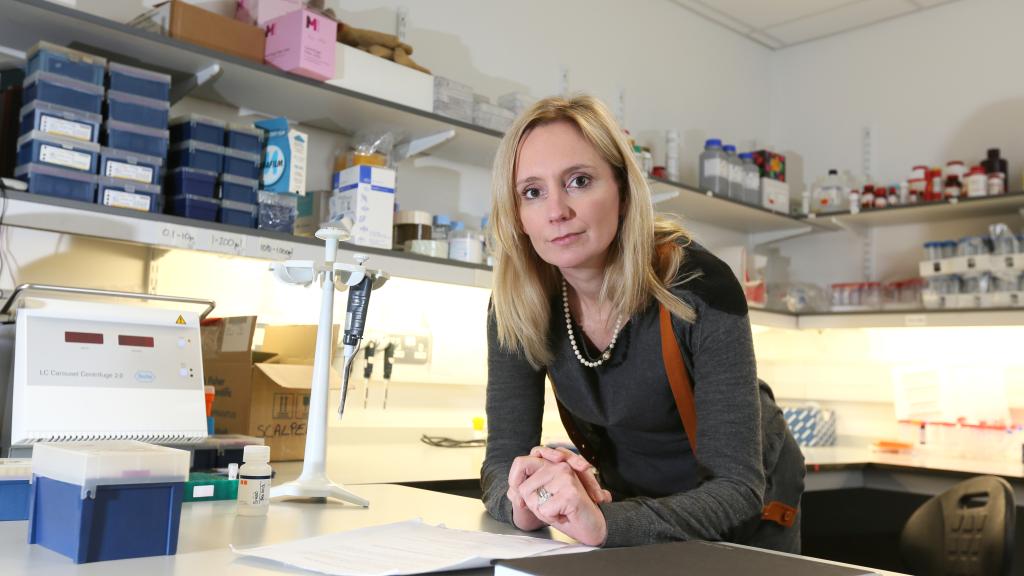
Potential new treatment for ER-positive breast cancer patients
Research funded by the Irish Cancer Society has found a potential way to treat one of the most common types of breast cancer.
Prof Leonie Young, a cancer researcher with from the Irish Cancer Society Collaborative Cancer Research Centre BREAST-PREDICT, and Dr Sara Charmsaz have found a new way to monitor the treatment of Estrogen receptor-positive (ER-positive) breast cancer patients.
Learn more about BREAST-PREDICT
Women with this form of breast cancer, which is one of the most commonly diagnosed, usually take drugs such as Tamoxifen or Aromatase Inhibitors (known as endocrine therapy) to reduce the chances of the cancer coming back. However, some of these patients can become resistant to these treatments and their cancer returns.
Prof Young and Dr Charmsaz have found that ER-positive women with high levels of the biomarker S100Beta in their blood are significantly more likely to see their disease return.
Moreover, when the researchers tested breast tumour samples in the lab with a combination of endocrine therapy and a drug to block signals linked to S100Beta, they found that tumour growth was reduced. This indicates that this treatment may be effective in treating ER-positive breast cancer patients whose cancer has been resistant to already established drugs.
Professor Young (pictured) explained, “The early detection of patients with treatment resistance enables a different strategy to be put in place which can significantly improve these patient’s survival. We hope these findings can lead to a clinical trial in the future, with patients potentially benefitting from these new monitoring strategies which could increase survival of patients.”
The researchers suggest that a clinical trial to evaluate S100Beta for routine monitoring of ER-positive breast cancer patients during endocrine treatment is the next step.
Prof Young and Dr Charmsaz published a paper on their findings in BMC Medicine in April 2017. Read ‘S100β as a serum marker in endocrine resistant breast cancer’ here.
